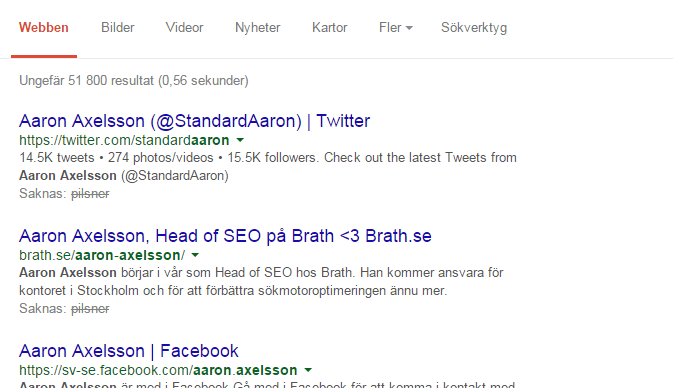

Many times when you search for a longer combination of words, Google has to show results that aren’t relevant to all the words. For example, if you’re trying to find every time Aaron Axelsson (Head of SEO here at Brath) has written about pilsner, Google might return results that include only Aaron and no pilsner. Now, they’re making this clearer.
There still isn’t comprehensive information on the internet—at least not in Google’s index. And we, the users, are increasingly searching with more complex combinations of words. Longer phrases make it harder to find a document that fits exactly. If, like in the example above, I want to find articles where Aaron Axelsson has written about pilsner, it’s difficult—there simply aren’t many pages online that are a good match for both “Aaron Axelsson” and “pilsner.”
In these cases, Google chooses to prioritize the beginning of the query, showing pages relevant to “Aaron Axelsson.” “Pilsner” simply gets dropped, even though there are plenty of pilsner-related pages online (about 8 million, according to Google). What’s new is that Google is now willing to show what had to be left out in order to generate the search results. Take note of the small line under the result description that says “Missing: pilsner.”
Interesting, we think at Brath, and probably something that will make things easier. Especially for those doing informational searches.
